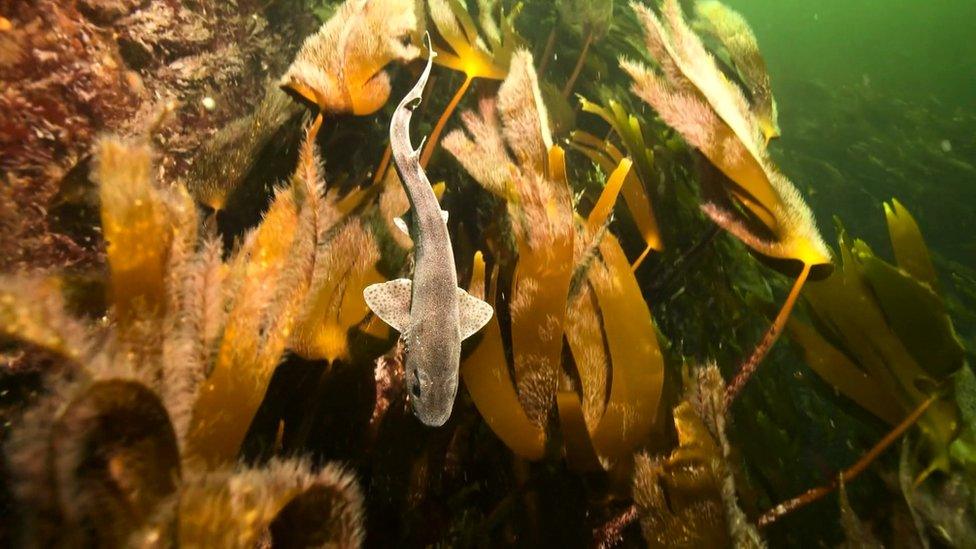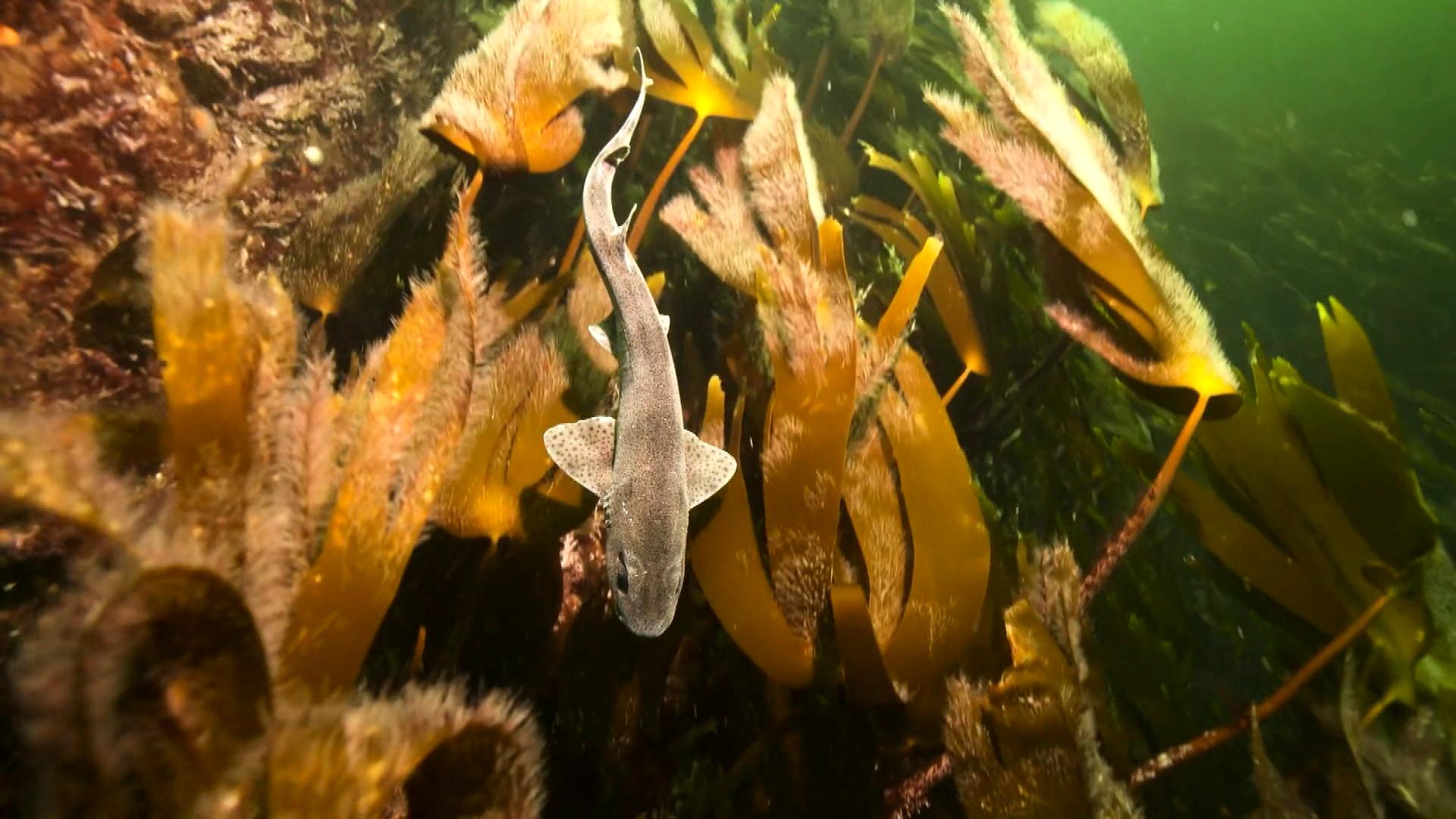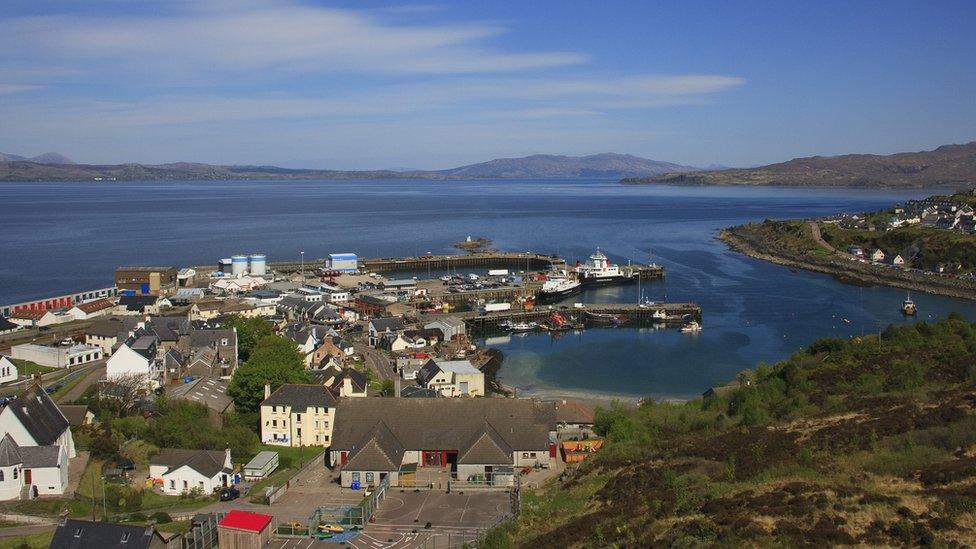Mechanical kelp harvesting areas off Scotland 'too large'
- Published

Forests of kelp provide habitat for other marine life
Marine Scotland has said a plan to mechanically harvest kelp off Scotland's west coast involves too large an area.
Ayr-based Marine Biopolymers Ltd wants to extract natural polymers from the seaweed to use in foods and pharmaceuticals.
Its plan to mechanically harvest kelp was opposed by conservation groups and communities on the west coast.
Marine Scotland has recommended the firm consider harvesting smaller areas.
Its licensing operations team considered 2,275 representations from the public on the company's plan, which was set out in a scoping report the firm submitted to Marine Scotland.
Marine Biopolymers needs a licence from the directorate of the Scottish government for the harvesting.
Marine habitats
In newly released document, the licensing operations team said that having read public responses to the plan it considered Marine Biopolymers' "current application area too large".
People living in Ullapool, on the north west coast, and the Isle of Tiree had raised concerns about the company's proposals.
They said commercial harvests would damage marine habitats and destroy a defence against coastal erosion.
Marine Biopolymers Ltd published a scoping report over the summer as part of its work towards applying for a licence.
Under the plan, the amount harvested would gradually rise from about 1,300 to 30,000 tonnes over the course of a licence period.
The kelp would be processed at a plant in Mallaig in the west Highlands.
'Quality jobs'
The company said it would avoid sensitive marine environments, and areas of seabed would not be re-harvested within a given time period to allow the seaweed to recover.
It also said that world-leading technology would be used in the operations, which would create "sustainable employment and diversification opportunities" in rural communities.
A spokesman for Marine Biopolymers said: "We welcome the response to our scoping report from Marine Scotland and look forward to the opportunity to engage with them further over the coming weeks.
"The scoping report is the first stage of an extensive consultation process, laying out our ambitions to re-establish a thriving seaweed and biopolymer industry in Scotland, creating quality jobs and a sustainable, environmentally sound business."
He added: "Marine Scotland outlined areas in the report for further discussion, including the size of area we have proposed to consider harvesting in.
"We are very willing to have this conversation and are confident that we will be able to reach a satisfactory agreement."
- Published12 September 2018

- Published14 August 2018
